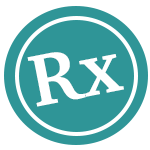Horse Cushing's Disease
Sort + Filter
Show
Buy Trusted Horse’s Cushing’s Disease (PPID) Treatments
Equine Cushing’s Disease, also known as Pituitary Pars Intermedia Dysfunction (PPID), is a hormonal disorder that primarily affects older horses. It occurs when the pituitary gland becomes overactive, leading to an imbalance in cortisol production. This can result in laminitis, abnormal hair growth, muscle loss, and immune system deficiencies.
At HardyPaw, we provide trusted, vet-approved solutions to help manage PPID symptoms and improve your horse’s quality of life. Our selection includes:
- Prescription Medications (Pergolide) – Helps regulate hormonal imbalances to control symptoms.
- Senior Horse Supplements – Supports muscle health, immune function, and metabolic balance.
- Low-Sugar & High-Fiber Feeds – Helps maintain weight and prevent complications like laminitis.
With proper treatment and daily management, horses with PPID can live comfortably and maintain an active lifestyle.
What Causes Cushing’s Disease in Horses?
Equine Cushing’s Disease, or Pituitary Pars Intermedia Dysfunction (PPID), is caused by dysfunction in the pituitary gland. This gland, located at the base of the brain, regulates hormone production. When it becomes overactive, it produces excessive amounts of adrenocorticotropic hormone (ACTH), leading to increased cortisol levels. This hormonal imbalance affects metabolism, immune function, and overall health.
Key Causes of Cushing’s Disease in Horses
- Aging & Hormonal Changes – Horses over 15 years old are at the highest risk due to pituitary degeneration.
- Pituitary Gland Enlargement – Over time, an enlarged pituitary gland disrupts normal hormone regulation.
- Insulin Resistance & Metabolic Stress – Some horses develop metabolic issues, making them more prone to PPID.
Why Early Detection Matters
Cushing’s Disease is progressive, meaning symptoms worsen over time if left untreated. Early diagnosis allows for effective management through medications and dietary adjustments.
By understanding the causes, horse owners can take proactive steps to manage symptoms and maintain equine health.
What Are the Best Treatment Options for Equine Cushing’s Disease?
While Cushing’s Disease (PPID) has no cure, it can be effectively managed with the right medications, dietary support, and lifestyle adjustments. A well-structured treatment plan helps control symptoms, prevent complications, and improve quality of life.
Medications for Cushing’s Disease
The most effective medication for managing PPID is pergolide, a dopamine agonist that helps regulate pituitary gland function and reduce excess hormone production.
- Pergolide (Prascend) – The most commonly prescribed PPID medication, shown to effectively reduce symptoms and slow disease progression.
- Regular ACTH Testing – Ensures that medication dosage is adjusted as needed based on hormone levels.
Nutritional & Supportive Care
Managing PPID symptoms goes beyond medication—proper diet and supplements play a crucial role.
- Low-Starch, High-Fiber Diet – Helps prevent laminitis and insulin resistance.
- Joint & Muscle Support Supplements – Helps counteract muscle loss and mobility issues.
- Immune-Boosting Nutrients – Strengthens the immune system to prevent infections.
Combining Medications & Supportive Care
For best results, veterinarians recommend a combination of medication and supportive therapies to ensure hormonal balance and overall well-being.
With the right treatment plan, horses with Cushing’s can stay active, comfortable, and healthy.
How Can You Support Your Horse’s Health Beyond Medication?
While medications like pergolide help regulate hormone levels, supportive care plays a crucial role in managing Cushing’s Disease (PPID). Proper nutrition, exercise, and stable management can enhance your horse’s comfort and prevent complications.
Nutritional Support for PPID Horses
A specialized diet can help control metabolic imbalances and reduce the risk of complications like laminitis.
- Low-Starch, Low-Sugar Feeds – Helps prevent insulin resistance and weight fluctuations.
- Easy-to-Chew Hay Options – Beneficial for senior horses with dental issues.
- Omega-3 Fatty Acids – Supports immune function and reduces inflammation.
Joint & Muscle Support for Aging Horses
Cushing’s can lead to muscle loss and joint stiffness, making mobility support essential.
- Glucosamine & Chondroitin Supplements – Helps maintain joint flexibility and reduce stiffness.
- Vitamin E & Selenium – Supports muscle function and recovery.
- Hoof Supplements – Strengthens hoof integrity to prevent laminitis.
Stable & Environment Management
Creating a PPID-friendly environment can help prevent infections and reduce stress.
- Routine Grooming & Hoof Care – Helps manage excessive hair growth and prevent hoof infections.
- Consistent Exercise Routine – Maintains muscle strength and overall health.
- Regular Veterinary Checkups – Ensures medications and diet are properly adjusted over time.
A Holistic Approach to PPID Care
Managing Cushing’s Disease requires a balance of medication, nutrition, and lifestyle adjustments to keep your horse comfortable and healthy.
By incorporating proper nutrition and lifestyle care, you can help your horse live a more comfortable and active life.
Why Choose HardyPaw for Your Horse’s PPID Care?
Managing Cushing’s Disease (PPID) requires a combination of trusted medications, nutritional support, and long-term care. At HardyPaw, we provide vet-approved solutions designed to help regulate hormone levels, support metabolic health, and improve your horse’s overall well-being.
✔ Vet-Approved PPID Medications – Trusted solutions for managing Cushing’s symptoms.
✔ Fast and Reliable Shipping – Ensuring your horse gets treatment without delay.
✔ High-Quality Supplements & Feeds – Designed for senior horse health and metabolic balance.
✔ Secure and Easy Ordering – A trusted source for equine wellness products.
With the right treatment and lifestyle support, your horse can stay comfortable and active despite Cushing’s disease. Shop Now






